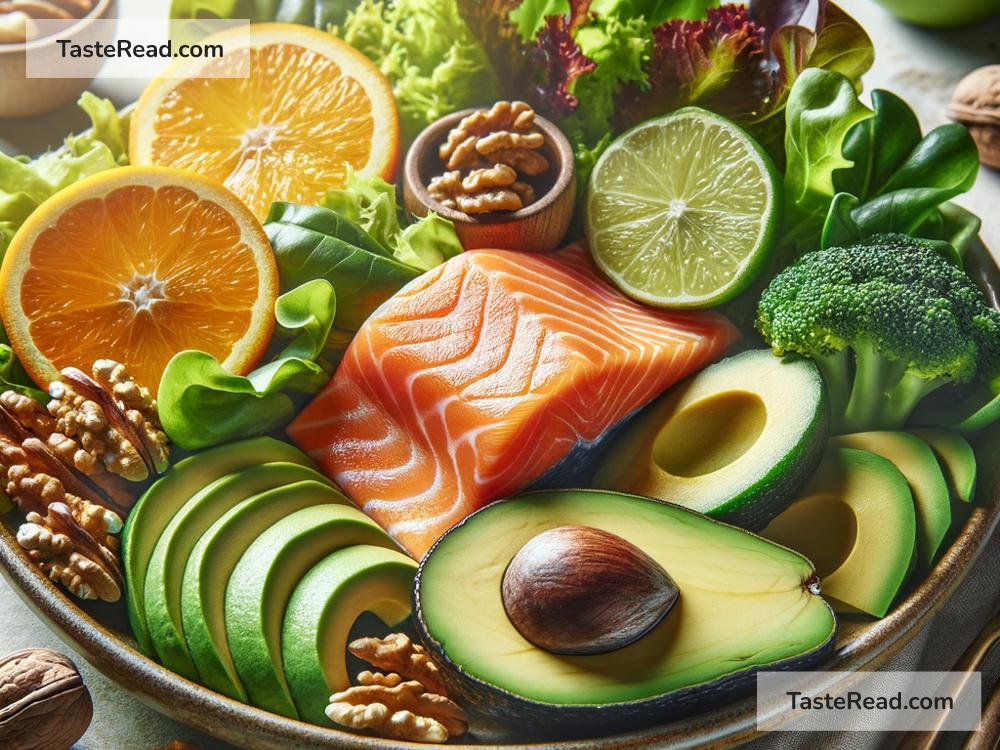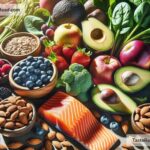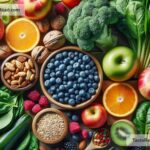Foods That Promote Wound Healing: Nourish Your Body to Heal Faster
When you get injured, whether from a small cut, surgery, or a nasty scrape, your body works hard to repair itself. However, you can speed up the healing process by eating the right foods. Wound healing isn’t just about keeping the injury clean and dry—it’s also about giving your body the nutrients it needs to regenerate skin, fight infection, and rebuild damaged tissue. Let’s explore the best foods to eat to heal your wounds faster, explained in simple terms.
Why Food Matters for Wound Healing
Your body is like a machine that repairs itself when it’s injured, but it can’t perform at its best if it doesn’t get the right fuel. Food provides your body with proteins, vitamins, and minerals that play key roles in:
- Regenerating skin tissue (to close up the wound).
- Producing collagen (a protein needed for strong skin).
- Fighting infections (to keep your wound clean and prevent germs).
- Reducing inflammation (so the area heals smoothly).
If you eat healing-friendly foods, your body will have everything it needs to recover faster and better.
Foods That Help Heal Wounds
Here are some foods packed with nutrients that are perfect for wound healing:
1. Protein: The Building Block
Protein is essential for tissue repair and growth. It helps build new skin cells to close the wound and strengthen surrounding tissue. If your body doesn’t get enough protein, healing slows down.
Best Sources of Protein:
– Eggs
– Chicken, turkey, and fish
– Beans and lentils
– Tofu and soy products
– Nuts and seeds (almonds, peanuts, sunflower seeds)
For faster healing, make sure every meal has some protein.
2. Vitamin C: The Collagen Booster
Vitamin C is crucial for producing collagen, which binds tissues together and strengthens your skin. It also helps protect your wound area from infections by boosting your immune system.
Foods Rich in Vitamin C:
– Oranges, lemons, and grapefruits
– Strawberries
– Bell peppers (especially the red ones)
– Broccoli
– Spinach and kale
Eating colorful fruits and vegetables ensures you get plenty of vitamin C.
3. Zinc: The Repair Expert
Zinc is a mineral that helps your body repair damaged cells, reduce inflammation, and fight infection. It speeds up the healing process and promotes healthy skin and tissue growth.
Zinc-Rich Foods:
– Beef and chicken
– Shellfish, like oysters and crab
– Pumpkin seeds
– Whole grains (like oatmeal and quinoa)
– Dairy products (like milk and yogurt)
Adding zinc-rich foods can significantly improve your wound recovery.
4. Vitamin A: Strengthen Your Skin
Vitamin A encourages your skin’s natural repair processes. It helps new skin cells grow and prevents scarring. Plus, it boosts your immune system to protect the wound from bacteria.
Vitamin A Foods:
– Sweet potatoes
– Carrots
– Eggs
– Cantaloupe
– Leafy greens like spinach and collard greens
These foods also add a pop of color to your plate!
5. Iron: The Energizer
Iron is responsible for carrying oxygen throughout your body, including to your wound. Oxygen speeds up the healing process by helping tissues regenerate.
Iron-Rich Foods:
– Red meat (in moderation)
– Spinach and other dark leafy greens
– Legumes (like lentils and chickpeas)
– Fortified cereals
– Dried fruits like apricots
Pair iron-rich foods with vitamin C sources to absorb the iron better.
6. Omega-3 Fatty Acids: Reduce Inflammation
Inflammation delays healing, so omega-3 fatty acids can help. These healthy fats calm inflammation and promote faster tissue repair.
Foods with Omega-3s:
– Salmon and mackerel
– Chia seeds and flaxseeds
– Walnuts
– Tuna
– Sardines
Replacing unhealthy fats (like fried foods) with omega-3-rich foods can make healing smoother.
7. Hydration: Don’t Forget Water
While hydration isn’t technically a “food,” it plays a big role in wound healing. Staying hydrated helps your body produce new skin cells and keeps the wound area moist—an essential part of healing.
Hydrating Options:
– Water
– Herbal teas
– Fresh smoothies
– Broths and soups
– Coconut water
Make sure you’re drinking enough water, especially if your wound is large or healing after surgery.
Foods to Avoid During Wound Healing
Certain foods can slow down the process or increase inflammation. Avoid:
– Processed junk food (chips, candy, and fast food).
– Sugary drinks (soda, heavily sweetened juices).
– Excess alcohol (can delay tissue repair).
– Fried foods (often full of unhealthy fats).
Stick to whole, natural foods to keep your energy high and healing efficient.
When Balanced Meals Do Wonders
Pairing your healing-friendly foods together works best. For example:
– Combine chicken (protein) with a side of sweet potatoes (vitamin A) and spinach (iron).
– Make a smoothie with strawberries (vitamin C), yogurt (zinc), and chia seeds (omega-3).
– Enjoy grilled salmon (omega-3) with quinoa (zinc) and steamed broccoli (vitamin C).
Balanced meals ensure that your body gets everything it needs in one sitting.
Final Thoughts
Healing wounds takes time, but the right foods can make a big difference. Focus on nutrient-rich options like proteins, vitamins, minerals, and healthy fats, while drinking plenty of water. Avoid foods that increase inflammation or slow down recovery. By eating well, you’re giving your body the best chance to heal faster and minimize scarring. So next time you get a scrape or spill, nourish your body to let your wounds mend quickly—and healthily!


